The History of Butere Girls and Bold Plays
Butere Girls High School in Kenya has made a name for itself by using drama to talk about serious social issues. In 2013, the school performed a play called Shackles of Doom, written by Cleophas Malala. The play tackled sensitive topics like tribalism, nepotism, and unfair sharing of resources.
The story was about a poor community discovering oil, only to be taken advantage of by powerful outsiders. The government banned the play, claiming it could divide Kenyans, but the court later allowed it to be performed at the national drama festival.
This incident sparked national debate, and one of the loudest voices defending the play was Kipchumba Murkomen. At the time, he was a newly elected senator.
On social media, he asked why the play was banned and even suggested it should be performed at State House. He praised the students and teachers, saying they deserved the attention the play had received.
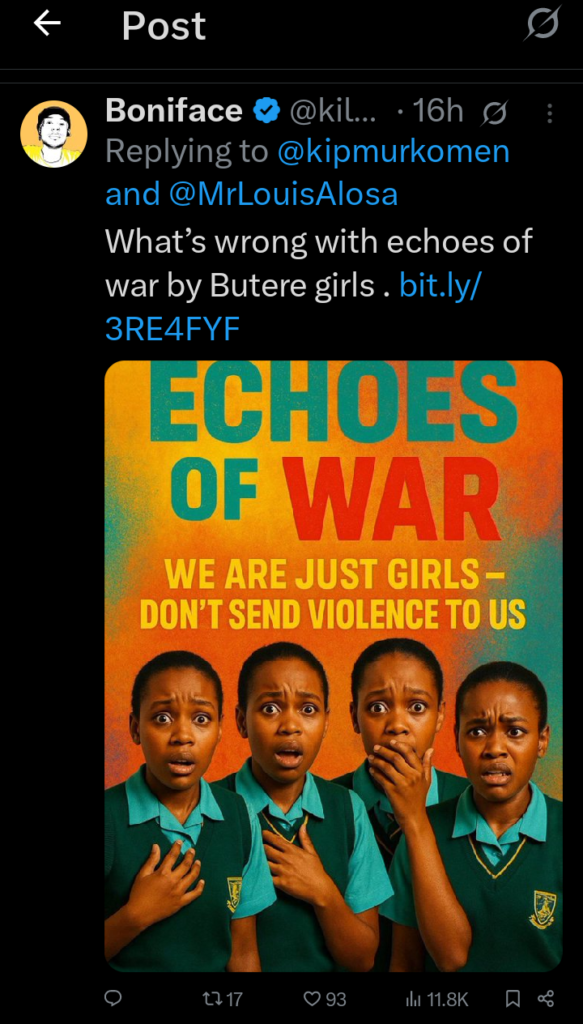
The 2025 Incident: Echoes of War and Police Teargas
Twelve years later, Butere Girls returned to the spotlight with another play written by Malala, Echoes of War. Like Shackles of Doom, it was critical of the government. The play was disqualified at first but later allowed to continue after a court decision.
However, on April 10, 2025, during the national drama festival, police disrupted the play by firing teargas. The performance ended in chaos, and even journalists were caught up in the incident.
The event drew strong criticism from organizations like Amnesty International and even Kenya’s Chief Justice Martha Koome. They said the use of police force was a threat to freedom of expression and the rule of law.
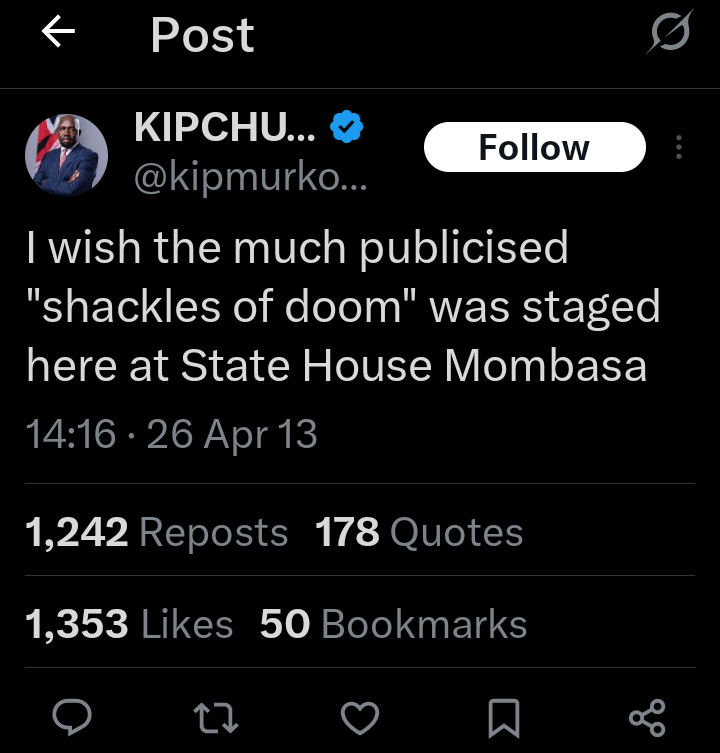
Murkomen’s Confusing Position
Murkomen is no longer a senator, he now serves as the Cabinet Secretary for Interior and is in charge of the police. After the teargas incident, he apologized for what happened to the journalists and said there would be an investigation.
But many people questioned why he didn’t condemn the attack on the students or take a stronger stand against the police action. This has led to serious questions about whether Murkomen still believes in freedom of expression. In 2013, he supported Butere Girls and defended their right to perform a critical play. In 2025, however, the police under his ministry attacked students for doing the same thing.
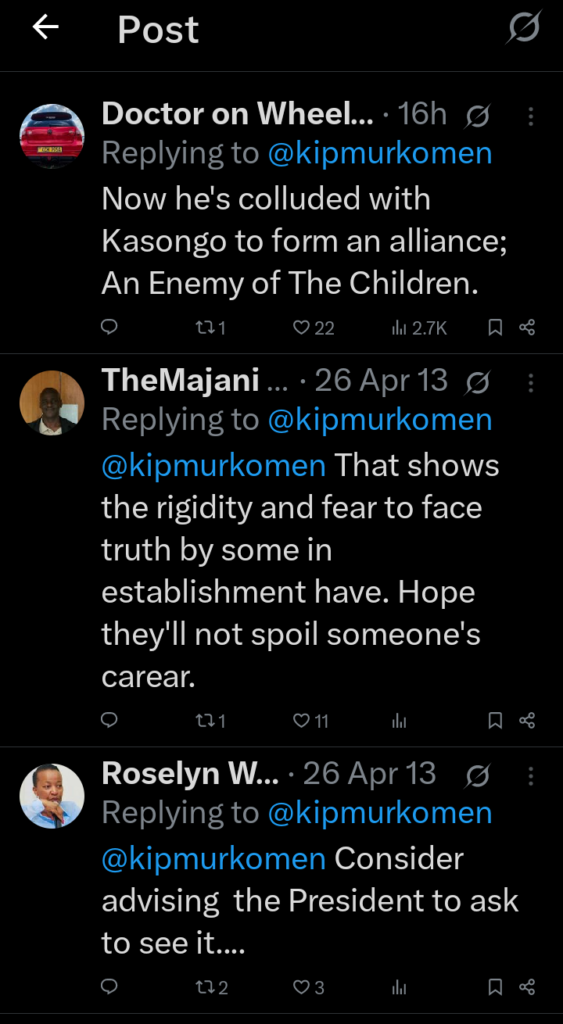
A Pattern of Censorship?
Looking at both incidents, a clear pattern appears. The plays were banned or blocked, only to be allowed back after court intervention. Both times, the plays criticized government failures, and both times, government institutions tried to silence them. Even though the courts supported the students, the actions of the police and education officials show a worrying trend of censorship.
Critics argue that Murkomen’s shift is not just disappointing but dangerous. When leaders who once defended freedom now allow state violence against students, it raises fears about the country’s direction.
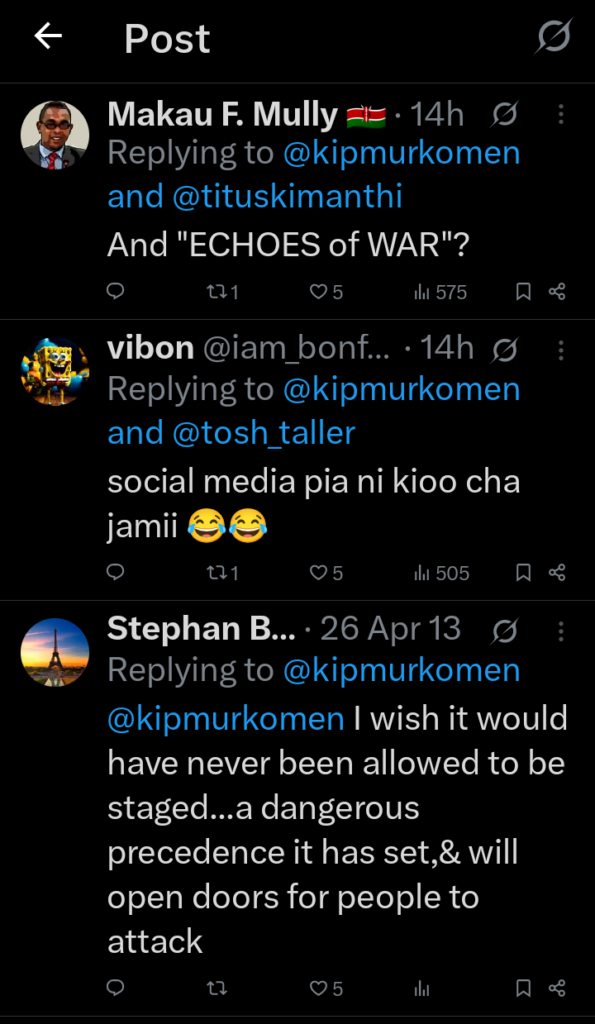
Public Reaction and the Bigger Picture
The public response has been strong. Activists, lawyers, and ordinary Kenyans have expressed concern over the government’s growing intolerance to criticism. Chief Justice Koome was especially vocal, saying that defying court orders sets a bad example and threatens democracy.
Murkomen, while offering a public apology, avoided taking full responsibility. His words focused more on the media being in the wrong place at the wrong time rather than protecting students’ rights to speak out.
This has made many feel that his leadership has shifted from protecting freedom to protecting power.
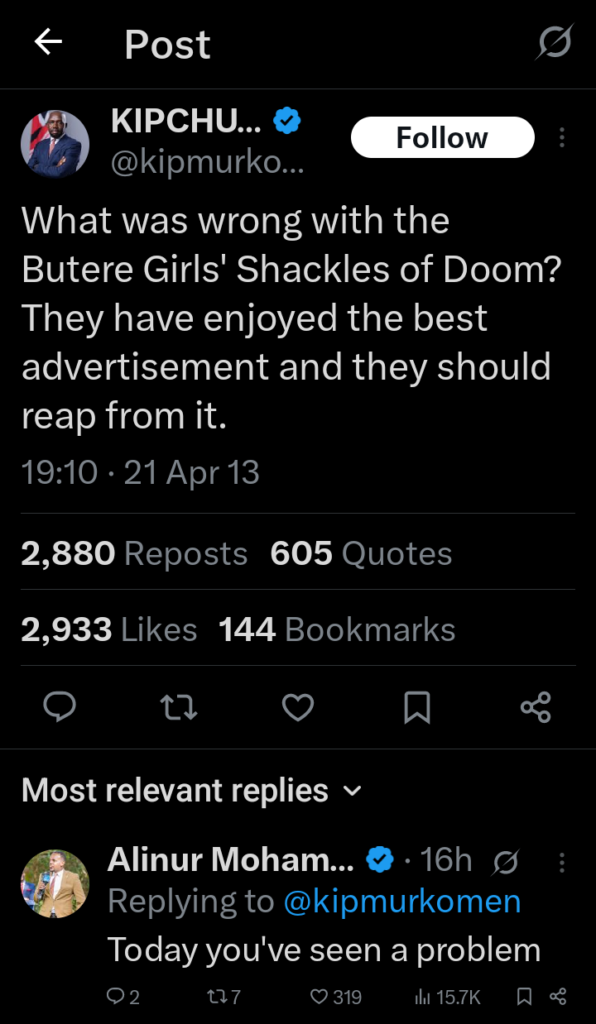
what Can We Conclude.
What happened at Butere Girls High School is more than just a school drama gone wrong. It is a mirror showing the state of freedom in Kenya today.
Kipchumba Murkomen’s past support for free speech and his current silence when the same rights are violated show a troubling contradiction.
Even as the government continues to control what students can say or perform, the public must stay alert. Defending artistic freedom, especially for the youth, is essential for any healthy democracy.





















Add Comment